Supporting Cell Press journals
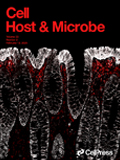
Cell Host and Microbe was launched in March 2007. The journal's mission is to provide a forum for the exchange of ideas and concepts between scientists studying the microbe with those studying the host immune, cell biological, and molecular response upon colonization or infection by a microbe.
Cell Host & Microbe will publish novel findings related to microbes (which includes bacteria, fungi, parasites, and viruses) from molecular and cellular biology to translational studies with particular emphasis on the interface between the microbe and its host (vertebrate, invertebrate, or plant; unicellular or multicellular). The unifying theme is the integrated study of microbes (pathogenic, non-pathogenic, and commensal) in conjunction and communication with each other, their host, and the cellular environment they inhabit. Work published in Cell Host & Microbe is expected not only to be of exceptional significance within its field, but also of interest to researchers outside the immediate area. In addition to primary research manuscripts, Cell Host & Microbe will publish expert analysis, commentary, and reviews on topics of current interest in the field.
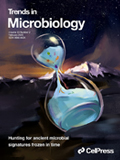
Trends in Microbiology provides a multidisciplinary forum for the discussion of all aspects of microbiology: from cell biology and immunology to genetics and evolution, and ranges across virology, bacteriology, protozoology and mycology.
Microbiology is, at present, one of the fastest moving disciplines in life sciences, thanks also to technological developments of the recent years. The relative ease and rapidity with which small genomes can be entirely sequenced is beginning to have significant impact on all areas of prokaryote biology, from pathogens to extremophiles, and will fuel new developments, for example, in drugs, vaccines and industrial enzyme research. Recent international developments are also responsible for a renewed interest in microbiology.
The table of contents includes a lively mix of commentary, correspondence and review. Most articles are commissioned and all of them are peer-reviewed. Consequently, they make an authoritative basis for teaching and keeping abreast of developments across the field.
The focus is on molecular microbiology and virology, and includes topics such as genomics, the gamut of plant and animal host-pathogen interactions, host immune responses, characterization and evolution of virulence determinants, cell cycle and differentiation, symbiosis in plant and animal associations, environmental microbiology, biodiversity and evolution, population dynamics, sex and mutagenesis, antibiotic resistance and production, drug and vaccine targets, as well as aspects of prion diseases and of fungal and protozoan biology.

Immunity publishes the most important advances in immunology research. We welcome studies that provide fundamental new immunological insights at the molecular, cellular, or whole organism level. Areas of interest include, but are not limited to, cancer, infectious disease, neuroimmunology, autoimmune disease, allergy, mucosal immunity, metabolic disease, and homeostasis.

Cell publishes findings of significance in all areas of experimental biology, including: cell biology, molecular biology, neuroscience, immunology, virology and microbiology, cancer, human genetics, systems biology, signaling, and disease
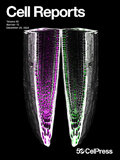
Cell Reports publishes high-quality research across the life sciences. The primary criterion for publication in Cell Reports is new biological insight. We have three primary article types. Reports are shorter, single-point articles; research articles are the longer format for work with deeper mechanistic insight; and resources highlight significant technical advances or major informational datasets that are used to show a biological advance. Reviews covering recent literature in emerging and active fields are also welcome.
The professional in-house editors of Cell Reports work closely with authors, reviewers, and the journal's scientific advisory board. The advisory board comprises current and future leaders in their respective fields who guide the journal’s scope, content, and quality. However, editorial decisions at Cell Reports are made independently by its in-house scientific editors.

Trends in Immunology plays an essential role in monitoring advances in the various fields of immunology, bringing together the results in a readable and lucid form. The backbone of each issue is a series of succinct reviews and hypothesis-driven viewpoints. Together with the other sections of the magazine they give the reader a complete picture of the diverse field of immunology.

iScience is a peer-reviewed journal from Cell Press that provides a platform for original research in the life, physical, earth, social, and health sciences. We aim to fuel interdisciplinary thinking and consider research with significant contribution to a relevant field combined with robust results and underlying methodology. To support transparency in scientific investigation, we consider replication studies and papers describing negative results, provided they offer clear value to the research community. The advances appearing in iScience include both fundamental and applied investigations across this interdisciplinary range of topic areas. At iScience, our mission is to provide a fast-paced peer-review process with exceptional author service. With the strong international reputation of Cell Press behind it, publication in iScience will help your work garner the attention and recognition it merits.
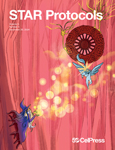
STAR Protocols (Structured Transparent Accessible Reproducible) is an open-access peer-reviewed protocol journal from Cell Press that publishes step-by-step experimental and computational protocols from all areas of life, health, earth, and physical sciences. The primary criteria for publication in STAR Protocols are usability and reproducibility.
STAR Protocols aims to make the daily work of the scientific researcher easier by providing complete, authoritative, and consistent instructions on how to conduct experiments. The primary criteria for publication in STAR Protocols is usability and repeatability. STAR Protocols gives scientists the space they need to explain what worked and, perhaps more importantly, what didn't.

Med is a flagship medical journal published monthly by Cell Press, the global publisher of trusted and authoritative science journals including Cell, Cancer Cell, and Cell Reports Medicine. Our mission is to advance clinical research and practice by providing a communication forum for the publication of clinical trial results, innovative observations from longitudinal cohorts, and pioneering discoveries about disease mechanisms. The journal also encourages thought-leadership discussions among biomedical researchers, physicians, and other health scientists and stakeholders. Our goal is to improve health worldwide sustainably and ethically.
Med publishes rigorously vetted original research and cutting-edge review and perspective articles on critical health issues globally and regionally. Our research section covers clinical case reports, first-in-human studies, large-scale clinical trials, population-based studies, as well as translational research work with the potential to change the course of medical research and improve clinical practice.
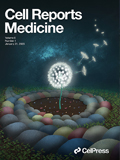
Cell Reports Medicine is a premium open-access journal from Cell Press publishing cutting-edge research in translational and clinical biomedical sciences that inform and influence human health and medicine.
The content published in Cell Reports Medicine reaches a broad range of scientists and clinicians across the spectrum of medical disciplines, ensuring that your work will be both visible and accessible. The journal publishes original research that ranges from exciting concepts in human biology, health, and disease to all phases of clinical work. We encourage submissions featuring innovative ideas that open up new directions in clinical research and practice, as well as studies that provide critical information that enriches our understanding of current standards of care in diagnosis, treatment, and prognosis. This includes, but is not limited to, translational studies, clinical trials in all areas of medicine including long-term trial follow-ups as well as work in genomics, biomarker discovery, and developments in technology that contribute to diagnostics, treatment, and healthcare. Studies based on vertebrate model organisms also fall within the scope of the journal, provided that the results are directly relevant to human health and disease.

Heliyon considers research from all areas of the physical, applied, life, social and medical sciences. We publish manuscripts reporting scientifically accurate and valuable research, which adheres to accepted ethical and scientific publishing standards. As such Heliyon publishes new insights as well as extensions on existing theories, negative/null results and replication studies.

Patterns is a premium open access journal from Cell Press, publishing ground-breaking original research across the full breadth of data science. We’re all about sharing data science solutions to problems that cross domain boundaries.